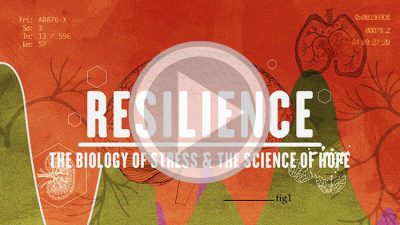Editor’s Note: The following piece originally appeared on the American Association of Colleges for Teacher Education (AACTE)’s Ed Prep Matters blog, authored by Neag School Professor and Director of Research Sandra Chafouleas. She also is co-director of the Collaboratory on School and Child Health at UConn. The views expressed in this post do not necessarily reflect the views of AACTE.
What Happened to Eric and Josh? Lessons From ‘Resilience’ on Achieving a Whole-Child Focus in Educator Preparation

In the ’90s, I worked as a school psychologist and then as an administrator in urban and rural settings. I used my graduate training in behavior management to help students overcome challenges and meet classroom expectations.
I have since spent almost two decades training future educators and conducting research on school-based behavior assessment and intervention tools for educators. I can say with confidence that my work has resulted in many successes, but I also know we have advanced significantly in our understanding of how to attend to the “whole child” since my early work in schools. I often think about how my colleagues and I might have done more for our students.
“I often think about how my colleagues and I might have done more for our students.”
Eric, for example, was a fifth-grader in a rural setting where school was the only way to access support. Eric presented with cognitive delays and had displayed intensive behavioral challenges to the extent that he (and his younger brother) was placed in special school settings. Our meager team worked hard to support Eric, but at each meeting with his family, it was apparent that more intensive home supports were needed. We were left feeling dissuaded that we could enact real change.
I remember another student, Josh, who was a second-grader in an urban school. He struggled to meet academic expectations, displayed moderate behavioral challenges, and was frequently tardy. Our support team worked with his teachers to design skill-based intervention plans. We occasionally commented on the lack of home supports, but our practice did not include deeper inquiry that might have brought a better understanding of the whole picture of Josh’s life.
Today, we know more about the science behind adverse child experiences and how to foster resilience in students like Eric and Josh. I often wonder if the countless hours we spent did enough for them — meeting with student-support teams, volunteering for classroom field trips, even just playing Connect 4 to give students a break. How much more effective could we have been if we’d taken a more whole-child approach?
At my university, we’re taking an interdisciplinary path to studying school and child health to further boost our understanding of how to serve the whole student more effectively. To kick off our work at the UConn Collaboratory on School and Child Health, we recently screened the new one-hour film “Resilience: The Biology of Stress and the Science of Hope” as our first major event, providing a compelling launching point for our emerging work.
The film helps everyone who interacts with children and their families, particularly in school contexts, to understand the science behind toxic stress as a critical step toward making informed decisions and providing better service and support. Whether you are a teacher, school leader, literacy instructor, or student support specialist, this understanding is critical to your work. “Resilience” supports the whole-child approach by presenting what science tells us about the impact of adverse childhood experiences, prompting essential conversations about how to address children’s needs holistically.
My favorite clip in the film is a statement about putting information in the hands of others so they can invent wise actions. In the days since screening “Resilience” for nearly 250 people, I have not been able to walk down the hall without being stopped by someone interested in further conversation.
And to Eric and Josh, wherever you may be: Please know that I still care about you both, and hope that your life paths have included ample fostering of resilience for you and your families.
Access the original blog post — “What Happened to Eric and Josh? Lessons From ‘Resilience’ on Achieving a Whole-Child Focus in Educator Preparation” — on the AACTE’s Ed Prep Matters website. View photos from the “Resilience” screening event.
 Facebook
Facebook
 Twitter
Twitter
 LinkedIn
LinkedIn
